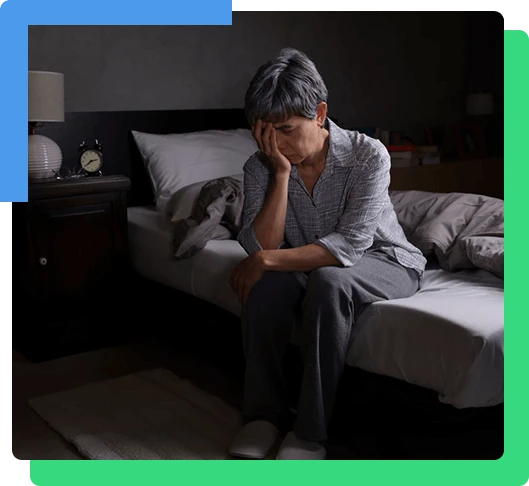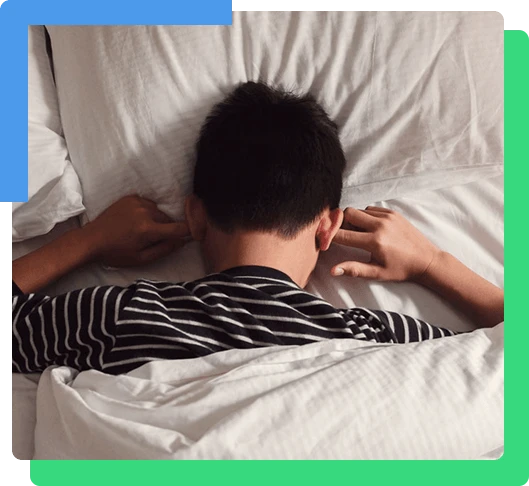Insomnia

Insomnia Specialist
Insomnia Q & A
What is insomnia?
You feel like you’ve been tossing and turning for hours. Your mind is racing with spiraling thoughts, and sleep seems like it’s off the table for the night. Insomnia is a common sleep disorder that affects around a third of American adults.
Insomnia occurs when you can’t fall or stay asleep. You might wake up during the night and not be able to return to sleep easily, or you could wake up well before your alarm and be awake for the day.
- Daytime fatigue
- Irritability
- Reduced concentration
- Memory problems
What causes insomnia?
Many factors contribute to insomnia. For example, almost everyone has missed sleep because of a stressful life event.
Also, the food you eat, caffeine, alcohol, and some medications can disrupt your sleep. If you work abnormal or changing shifts or have to travel frequently for work, you might experience insomnia.
Your mental or physical health can also cause insomnia. Depression, anxiety, and PTSD contribute to insomnia. Also, chronic pain and hyperactive thyroid disorders can keep you up at night.
When should I talk to a doctor about insomnia?
- Obesity
- High blood pressure
- Heart disease

How is insomnia treated?
Your provider begins with an exam and consultation to identify the root cause of your insomnia. Then, they create a treatment program to address the cause of your sleeplessness.
Depending on your needs, your provider could prescribe medication to ease your mental health symptoms in combination with counseling to resolve the thoughts and emotions that keep you up at night. If they find an underlying health issue that can cause insomnia, they offer treatment or a referral to a specialist.
Your provider might also recommend improved bedtime habits, like limiting screen time, bright lights, and food and drink.
If you’re living with insomnia, call Esperanza Behavioral Health and Services, or make an appointment online today.
